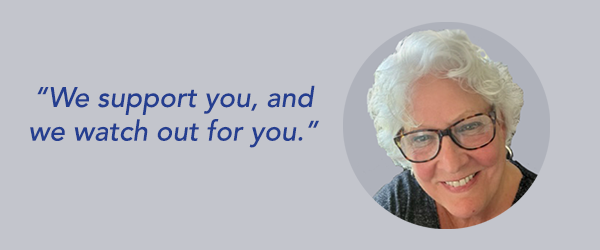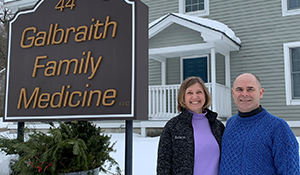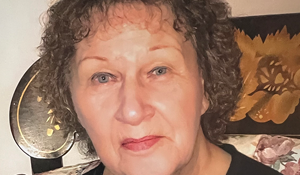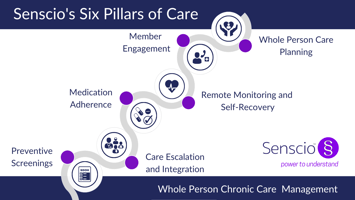“This is a great partnership to be able to...improve your bottom line and your quality of care,”...
Teaching patients how to take better care of themselves at home
Q&A with Sharon Bearor, RN, BSN, Chronic Care Specialist, Ibis Health Program
For the roughly 4 in 10 Americans facing two or more complex chronic diseases, navigating the health care system can be overwhelming. With multiple doctor visits and medications to keep track of, patients may experience repeat visits to the emergency room, unplanned hospital stays, and missed days of work when they suffer symptom flare-ups or exacerbations.
Bearor brings that understanding and experience to her new role supporting members of the Ibis Health Program. The Ibis Health care team bridges the care gap between visits to medical providers, engaging patients in dynamic daily planning and goal setting that allows them to take better care of themselves at home. Senscio’s patented care management AI powers the system, monitoring patient vitals and care plan adherence, engaging the patient in self-management and symptom management, and alerting the care team when issues arise.
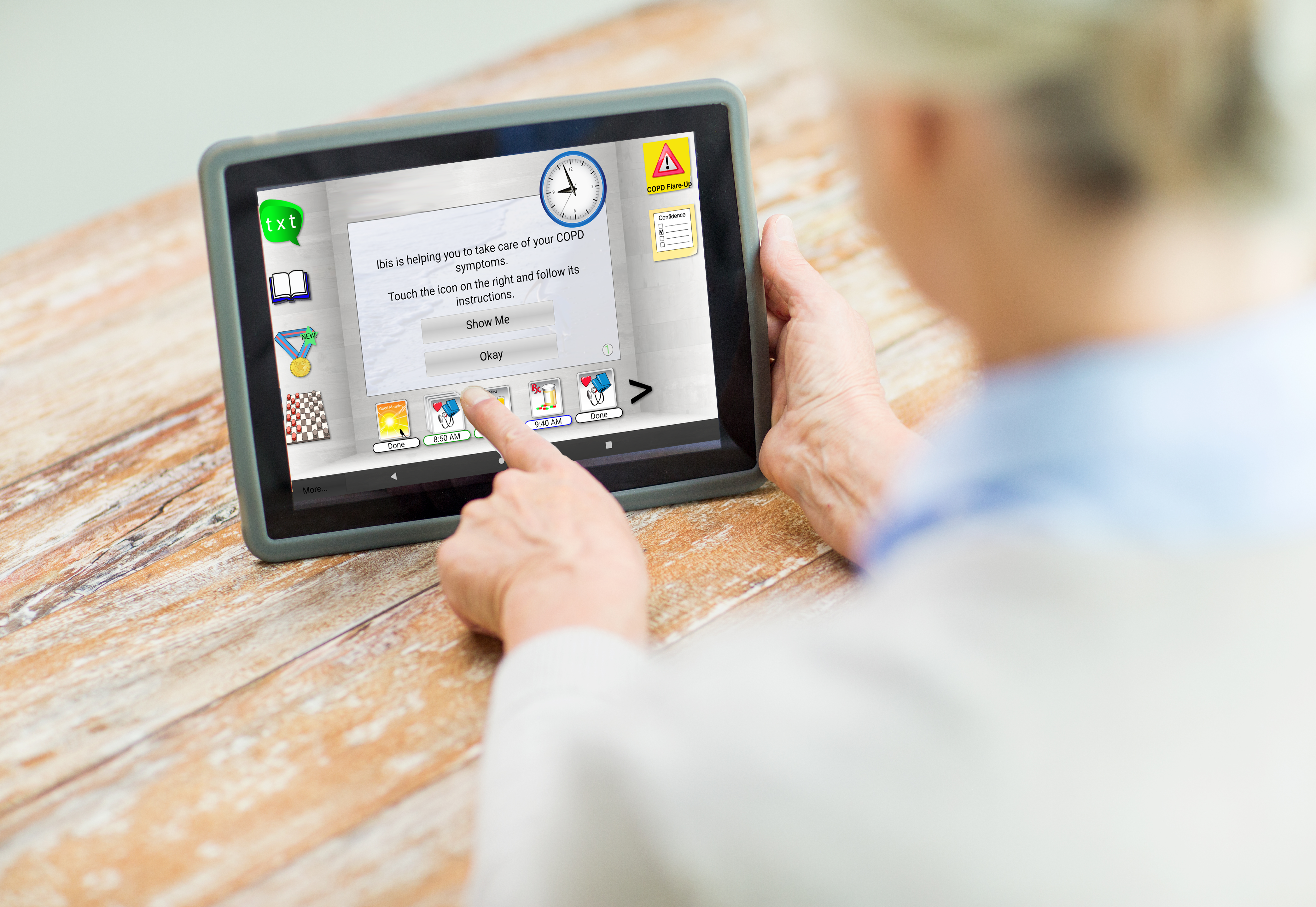
As a chronic care specialist for Senscio’s Ibis Health program, what do you do?
What does this look like on a day-to-day basis?
How can this be helpful to providers?
“We are an extra set of eyes to look at data on your patients’ vital signs. And we are RNs who are trained in critical thinking and can determine signs that may require more attention from a provider. We prevent hospitalizations, which is always good, keeping our patients safe, healthy and feeling good. We get 60 minutes of live support per member per month to be able to take care of them, and that is a lot.”
How would you respond to a provider who says my patients will never do this?
“I would say hogwash! They are doing it. Our 80-year-olds are doing it. And we meet them where they are. Can you only do your pulse? Great, we’ll keep an eye on your pulse. And then we’ll teach you how to take your blood pressure. Our guidance and support are extraordinary in this company. The tablet is easy to use, with big icons for people who have sight issues, and we’ll walk you through it. And every month, you’ll get a call from a member advocate for a general check-in. They’ll ask questions about your health, but maybe also about the pets and how you are spending your time. This is so meaningful for patients’ state of mind, and their isolation, and helps us to know, hey they are out playing cribbage, they are doing well. They feel that someone cares. That’s on the hierarchy of needs, to be cared for and to feel loved.”
What else would you like providers and patients to know about the Ibis program?
“We don’t treat, and we’re not providers. We are a watchdog. We support you, and we watch out for you. Every patient I’ve talked to, they like the fact that someone is looking after them.”

